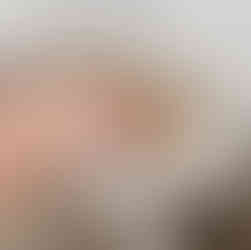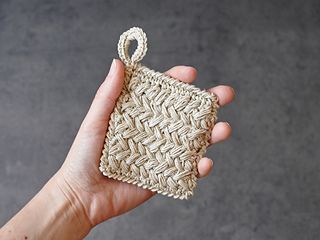Let's swap your plastic dish washing sponge for all natural alternatives
- Miri M

- Mar 27, 2021
- 3 min read

If you are still using dish washing sponges and dish towels made from petrochemical materials, you better ditch them for all-natural materials and NEVER LOOK BACK.
Here's why you need to make this swap immediately:
Microplastics - Have you ever wondered why that yellow plastic sponge becomes smaller as you use it? Your sponge breaks down to microplastics and get washed down the drain. Most water treatment plants are not able to filter these microplastics and they end up in the food chain. Think about how many households there are in this world, and how much microplastics get released to into the ocean. The Chief Scientist for Ocean Conservation (George Leonard) estimates there are 1.4 million trillion microfibers in the ocean.
Plastics in the food chain - microplastics from the sponges that are too small to be seen, they adhere to utensils and get into our food. The microplastics in the water system are eaten by fish and get transferred into the food chain. Scientists have found microfibers in 114 types of fish - half of those are eaten by humans.
Landfills - these dirt-cheap plastic sponges are quickly disposed and end up in landfills and incinerators. Plastics as you already know, take hundreds of years to break down into small fragments. Toxic fumes are also released in the incineration process.
Fossil fuels - these plastic sponges are made from crude oil. Extraction of crude oil create pollution and environmental hazard to the planet.
Sustainable alternatives to plastic sponges
Below is a list of easy to find all-natural materials that can be 100% biodegraded organically. However, if you are not able to find them or they are pricey, even a piece of cotton cloth or an old sock will do.
Remember though, keep the sponge clean and dry every time after use because mould and bacteria can pile up.
Loofahs (luffa) - it is a type of tropical and subtropical vines in the cucumber family. It is cultivated and eaten at a young stage as a vegetable. When the fruit is fully ripened, it is very fibrous. The fully developed fruit is the source of the loofah sponge which is used in bathrooms and kitchens

Coconut fibre - the entire coconut plant can be used to make coconut fibre, is a natural fibre extracted from the outer husk of coconut and used in products such as floor mats, doormats, brushes and mattresses. Coconut sponges are mainly made from coir, which is the fibrous material found between the hard, internal shell and the outer coat of a coconut.

Bamboo brush - Bamboo can be a very sustainable crop: a fast-growing grass, it requires no fertiliser and self-regenerates from its own roots, so it doesn't need to be replanted. Some bamboo brush bristles are made from sisal agave plant (a plant from Mexico that is less sustainably planted), and some are from animals (pig hair), palm or bamboo, but some are made from plastics (nylon-4). Be smart when choosing the right one for you.

Cotton or linen dish rags - old T-shirt, old socks, old-towels that are too old to be worn or used can all be cut up into small squares for washing. It's simple and costs nothing. Of course, if you are crafty, you can sew the rags together to make a one of a kind sponge. Or take out your hooks and needles, 100% cotton or linen yarn and knit/crochet one! Remember not to use fabrics or yarn with any synthetic materials.
I felt a little crafty the other day, so cut up some loofah sponges, and made a little gift for a friend.
Every little change makes a big difference.
Wanna do the switch now? Let's do it!



















Comments